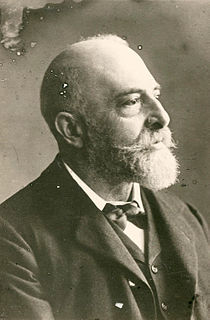A Quote by Leopold Auer
A worker without genius is better than a genius who won't work.
Related Quotes
Genius is its own reward; for the best that one is, one must necessarily be for oneself. . . . Further, genius consists in the working of the free intellect., and as a consequence the productions of genius serve no useful purpose. The work of genius may be music, philosophy, painting, or poetry; it is nothing for use or profit. To be useless and unprofitable is one of the characteristics of genius; it is their patent of nobility.
The great genius does not let his work be determined by the concrete finite conditions that surround him, whilst it is from these that the work of the statesman takes its direction and its termination. ... It is the genius in reality and not the other who is the creator of history, for it is only the genius who is outside and unconditioned by history.
I regret that I must so continually use the word genius, as if that should apply only to a caste as well defined from those below as income-tax payers are from the untaxed. The word genius was very probably invented by a man who had small claims on it himself; greater men would have understood better what to be a genius really was, and probably they would have come to see that the word could be applied to most people. Goethe said that perhaps only a genius is able to understand a genius.
Genius, without work, is certainly a dumb oracle, and it is unquestionably true that the men of the highest genius have invariably been found to be amongst the most plodding, hard-working, and intent men -- their chief characteristic apparently consisting simply in their power of laboring more intensely and effectively than others.
The Man of Genius may at the same time be, indeed is commonly, an Artist, but the two are not to be confounded. The Man of Genius,referred to mankind, is an originator, an inspired or demonic man, who produces a perfect work in obedience to laws yet unexplored. The artist is he who detects and applies the law from observation of the works of Genius, whether of man or nature. The Artisan is he who merely applies the rules which others have detected. There has been no man of pure Genius, as there has been none wholly destitute of Genius.
I do not despise genius-indeed, I wish I had a basketful of it. But yet, after a great deal of experience and observation, I have become convinced that industry is a better horse to ride than genius. It may never carry any man as far as genius has carried individuals, but industry-patient, steady, intelligent industry-will carry thousands into comfort, and even celebrity; and this it does with absolute certainty.

































